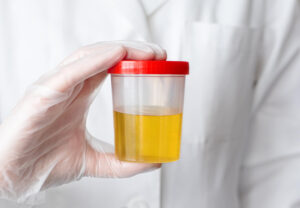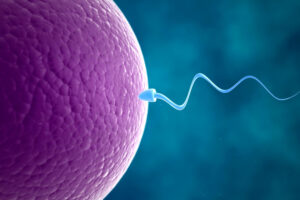Laparoscopic Ovarian Cystectomy is a surgical procedure used to remove the ovarian cysts – fluid filled sacs that can develop on the ovaries. This procedure is typically performed laparoscopically that stands out for its shorter recovery time, reduced pain, and minimal scarring as compared to traditional open surgeries. Understanding what to expect post-surgery can significantly enhance recovery and ensure ideal healing. In this blog, we will discuss Laparoscopy Ovarian Cystectomy and explain some tips for post-operative care.
Understanding Laparoscopic Ovarian Cystectomy
This method involves making small incisions in the abdomen through which a camera and surgical instruments are inserted to remove the ovarian cysts. According to the National Institute of Child Health and Human Development, most women can return home the same day or after a brief hospital stay. Recovery typically spans 1-2 weeks, depending on individual health and the complexity of the surgery.
In contrast, laparotomy is reserved for larger or potentially cancerous cysts, requiring a more extensive incision. This procedure often necessitates a hospital stay of 2-4 days and a recovery period of 4-6 weeks. While laparotomy has its place in more severe cases, laparoscopy remains the preferred choice for its less invasive nature. This guide provides essential insights and tips to help you navigate the recovery process after a Laparoscopic Ovarian Cystectomy with confidence and ease.
1) Pain Management
Discomfort and Pain are common challenges following Laparoscopic Ovarian Cystectomy. Patients may experience abdominal pain, as well as shoulder and neck discomfort caused by the carbon dioxide used to inflate the abdomen during surgery. Typically, the pain subsides within a few days to a week.
To manage post-operative pain, doctors may prescribe pain relievers or recommend over-the-counter medications. It is crucial to adhere to prescribed dosages and avoid self-medicating beyond the limit that has been recommended.
2) Rest and Physical Activity
Rest plays a major role post-surgery. Patients are advised to take it easy for the first few days post-surgery, avoiding various strenuous activities. However, light movements, such as short walks or gentle stretches, are encouraged to prevent blood clots and promote circulation.
Over time, patients can gradually resume their day-to-day activities. Avoid heavy lifting, vigorous exercise, and sexual activity for at least two weeks or until the doctor provides clearance.
3) Diet and Hydration
Nausea, vomiting or constipation may occur post-surgery. To alleviate these symptoms, opting for a light, easily digestible diet is necessary. Soups, broths and bland foods can help ease digestion. Staying hydrated is equally essential; drinking plenty of water accelerates healing and prevents constipation.
Avoid greasy, spicy, or heavy foods during the initial recovery phase. Small, frequent meals are preferable as compared to larger portions.
4) Wound Care
Taking proper care of the wound minimizes the risk of underlying infections. The small incisions made during laparoscopy may be closed with stitches, surgical glue, or sterile strips. These should be kept clean and dry.
Your doctor may recommend covering the incisions with a sterile dressing until healing is complete. Refrain from submerging in water (baths or swimming) until the incisions are fully healed.
5) Monitoring for Complications
While Laparoscopic Ovarian Cystectomy is relatively safe, complications can arise. Watch for the following signs and immediately seek medical attention if they occur:
- Persistent or worsening abdominal pain
- Fever or chills
- Excessive bleeding or discharge from the incision
- Swelling, redness, or warmth around incisions
- Difficulty breathing
Early detection and prompt medical intervention can prevent these issues from further escalating.
6) Emotional Well-being
Recovery does not limit to physical health but emotional well-being as well. It is totally normal to feel anxious, overwhelmed, or even experience certain mood shifts post-surgery. Managing these emotions through open communication with loved ones, engaging in relaxation techniques, and seeking professional support if necessary can help release the emotional burden.
7) Family Support
A strong support system significantly helps enhance the overall recovery process. Family and well-wishers can assist with daily tasks such as cooking, cleaning, and running errands. Beyond physical assistance, emotional support fosters a positive and comforting recovery environment.
8) Returning to Work
The timeframe for returning to work varies from patients to patients. For sedentary jobs, patients can often resume work within 1-2 weeks. Physically demanding roles may require additional time off. Always consult your doctor before returning to work to ensure readiness.
9) Scar Management
Although laparoscopy leaves minimal scarring, some scars may develop. Scar creams, silicone sheets, and laser treatments can minimize their appearance. Consistent application of scar treatment products can yield noticeable improvements over time.
10) Physical Therapy
In some instances, physical therapy may be beneficial post-surgery. This therapy aids in improving mobility, alleviating pain, and reducing the formation of scar tissue. A physical therapist can design personalized exercises to enhance core strength and posture.
11) Follow-up Appointments
Follow-up care is essential for monitoring progress. These appointments allow your doctor to check incision sites, discuss symptoms, and review test results. Imaging tests such as ultrasounds may be conducted to ensure the cysts have not returned.
Laparoscopic Ovarian Cystectomy offers a safe and effective solution for removing ovarian cysts. Proper post-operative care fosters a smooth recovery and reduces the likelihood of complications. By managing pain, resting adequately, staying hydrated, caring for wounds, and seeking emotional support, patients can recover fully and return to their daily routines.
Consult with your healthcare provider for personalized advice, and never hesitate to address any concerns during or post recovery . With the correct approach, you can ensure a coherent healing journey post Laparoscopic Ovarian Cystectomy.
Ensuring a smooth recovery and understanding procedures from start till healing is essential and requires advanced treatment, compassionate care, and consultation from experts.
About Boon IVF
At Boon IVF fertility center, we are committed to providing exceptional post-surgery care guided by our core values – Patient Commitment, Compassion, Passion for Excellence and Quality. With a team of experienced professionals and cutting-edge technology, we stand by you every step of the way, empowering your journey towards recovery and managing fertility challenges with confidence and trust. Visit (website) to know more about us or to schedule a consultation.


